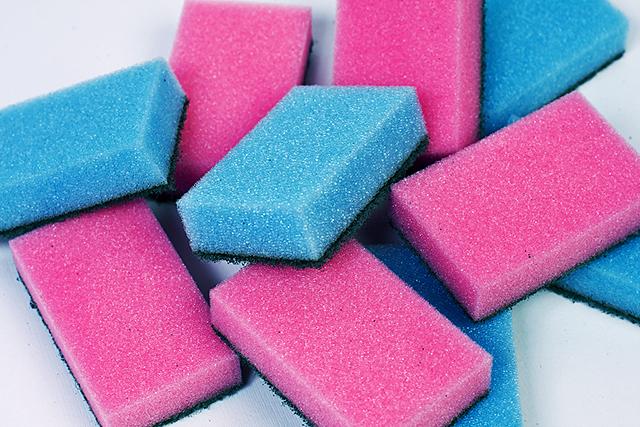Why You Should Never Microwave a Sponge
-

Cleaning a Dirty Sponge Only Helps Its Worst Bacteria, Study Says
by Joanna Klein of The New York Times
August 4, 2017Some people may think that microwaving a sponge kills its tiny residents, but they are only partly right. It may nuke the weak ones, but the strongest, smelliest and potentially pathogenic bacteria will survive. Then, they will reproduce and occupy the vacant real estate of the dead. And your sponge will just be stinkier and nastier and you may come to regret having not just tossed it, suggests a study published last month in Scientific Reports.
Bacteria are everywhere, so it’s no surprise that a kitchen sponge would be full of them. But previous research had underestimated a sponge’s quantity and range of bacteria. About 82 billion bacteria are living in just a cubic inch of space, the same density of bacteria in human stool samples. The sponge attracts bacteria — which arrive via food, the skin or other surfaces — with the perfect living conditions. There are lots of warm, wet and nutrient-rich spaces for them to thrive — among them — a microbe called Moraxella osloensis, widespread in nature, it can cause infections in people with weak immune systems. Moraxella osloensis is primarily responsible for the stench of dirty laundry, due to the compound produced by the bacterium’s metabolism and excretion of fats.
Those trying to save money will try to clean a sponge that starts to stink, but it’s probably time to let it go. Disinfecting it does not necessarily work. You can microwave a sponge, throw it in the dishwasher, douse it in vinegar or other cleansing solutions or even cook it in a pot. But the researchers discovered more of the potentially pathogenic bacteria, like Moraxella osloensis, on the sponges collected that were routinely disinfected. So when people at home try to clean their sponges, they make it worse by encouraging the growth of the most resistant bacteria. If you can’t clean it perfectly, it may be best to replace it with a new one every week or so. If you have to retain it, as a last resort run it through a laundry machine at the hottest setting using a powder detergent and bleach and then use it somewhere other than the kitchen that is less hygiene-sensitive, like the bathroom.
-
What about getting it soaking wet first so that the water it contains boils?
-
…Who on earth is microwaving their sponge? That seems so bizarre and random to me. Microwaves are for food, not washing utensils.
